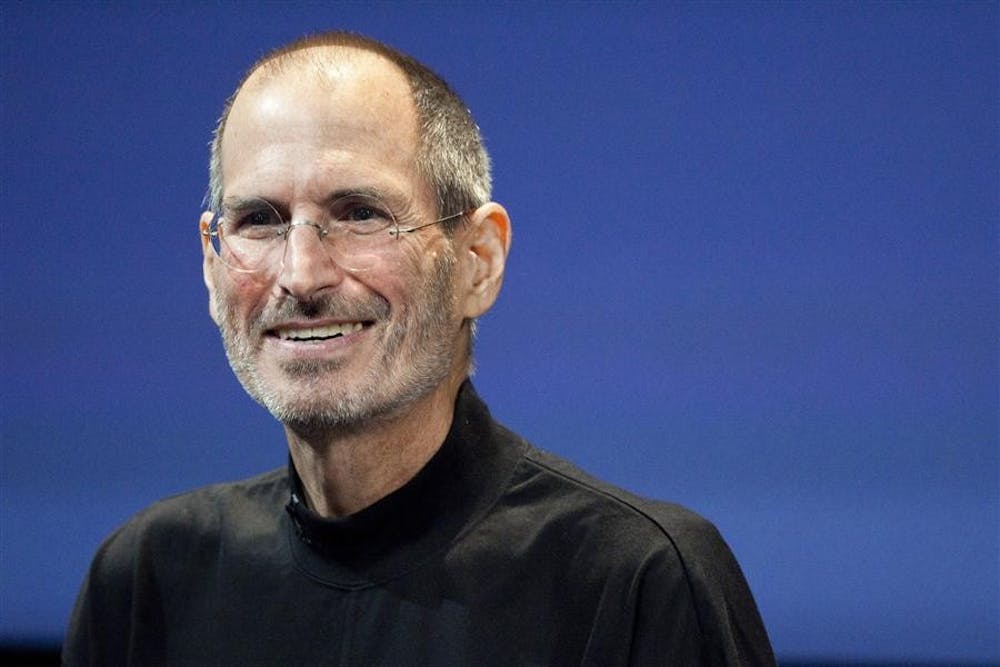On the 6 bus on Tenth Street, the air was full of the buzzing and beating of bass lines and melodies leaking from a dozen little white earbuds.
On campus, students walked to class with iPods connected to their ears and iPhones in their hands.
In the Herman B Wells Library, students sat in the lobby, checking email on their MacBook Pros and flipping through class readings on their iPads.
The influence of Apple on campus is undeniable. Computer labs are full of Macs, and stores in the Indiana Memorial Union sell Apple products. Taking a walk through the arboretum during a peak time of day will yield dozens of sightings of i-products and other Apple inventions.
Late Wednesday night, it was announced that Apple’s former CEO and co-founder Steve Jobs had died after a long struggle with pancreatic cancer, though the cause of death has not been officially released.
Yet on campus, Jobs’s influence on the personal computing industry is still felt after his death.
“It’s definitely sad. He was certainly an innovator. He definitely left his mark on the world,” senior Nick Beauchot said. “I have immense respect for their products.”
Beauchot was studying outside the Union Thursday on his MacBook, an iPhone at his side. He said he is a big Mac fan and doesn’t doubt the company will continue to succeed without Jobs.
“You know, him and Bill Gates worked really closely in the early years. Then Bill Gates just went the route of computing power and raw practicality, while Jobs said he’d make some of the coolest products the world has ever seen,” Beauchot said. “He’ll be missed.”
Jobs founded Apple in 1977 with Steve Wozniak and Roland Wayne in his parents’ garage. Their first computer was Apple I, a computer advertised with the phrase ‘byte into an Apple.’ In 1984, the first Macintosh was released.
In 2001, Apple, with Jobs at the helm, introduced the iPod. In 2007, the iPhone. In 2010, the iPad.
Dustin Abnet is a Ph.D. candidate in the history department specializing in the cultural history of technology.
“Their entire marketing strategy, their entire corporate image, was bound up in Jobs in a way no other company has been,” Abnet said. “He was probably the man most responsible for bringing computers into the lives of regular Americans.”
Abnet suggested that Jobs’s legacy will be his transformation of the abstract world of computers for the average American.
He compared Jobs’s influence on technology and computing to the changes rendered in society by Henry Ford and J. Robert Oppenheimer.
“What Jobs did with computers was to transform what a lot of Americans didn’t know a lot about into a tool for individual liberation,” Abnet said. “He transformed this scary, gigantic machine into something used to free individual human beings.”
IU responds to Steve Jobs’s accomplishments at Apple

Get stories like this in your inbox
Subscribe





